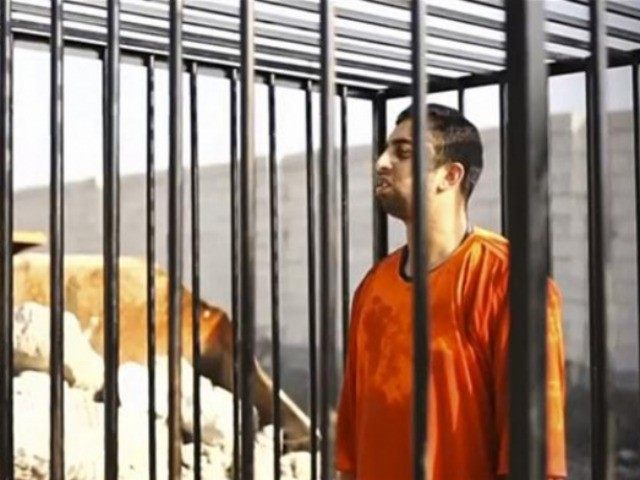The latest issue of ISIS’ magazine, Dabiq, devotes an article to defending the murder of a Jordanian pilot by burning him alive in a cage. Contrary to claims that such punishment is “un-Islamic,” ISIS lays out the case that it is in keeping with Islamic law.
When video of the murder of pilot Mouath al-Kasaesbeh was revealed earlier this month, commentators argued that such a punishment was contrary to Islamic beliefs. CNN’s Fareed Zakaria appeared on Jake Tapper’s show saying, “This has nothing to do with Islam, as you’ve pointed out, Jake, the burning of a body dead or alive is very un-Islamic.” Later, Zakaria would tell Don Lemon, “It doesn’t follow any precepts of Islam.” Similarly, the head of the Council on Amiercan-Islamic Relations (CAIR) held a press conference in which he called it “unspeakable and anti-Islamic.”
The latest issue of Dabiq, ISIS’ glossy, English-language magazine, attempts to justify the killing on the basis of Islamic law and history. In a piece illustrated with gruesome photos of the murdered pilot, the unidentified author writes:
In burning the crusader pilot alive and burying him under a pile of debris, the Islamic State carried out a just form of retaliation for his involvement in the crusader bombing campaign which continues to result in the killing of countless Muslims who, as a result of these airstrikes, are burned alive and buried under mountains of debris.
Thus, the Islamic State not only followed the footsteps of Allah’s Messenger (sallallāhu ‘alayhi wa sallam) in his harshness towards the disbelievers, but also emulated the example of his righteous Sahābah (radiyallāhu ‘anhum) by punishing with fire in retaliation, and for the purpose of terrorizing the murtaddīn and making examples out of them.

COMMENTS
Please let us know if you're having issues with commenting.